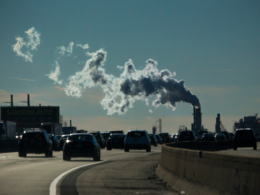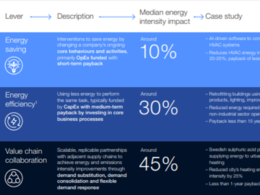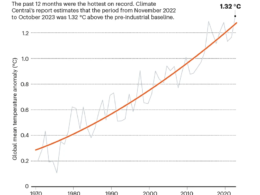the health strategist
institute for
health transformation
& digital health
Joaquim Cardoso MSc.
Chief Research and Strategy Officer (CRSO),
Chief Editor and Senior Advisor
September 6, 2023
What is the message?
Carbon credit speculators are facing potential financial losses as scientific evidence reveals that many purchased carbon offsets lack environmental value and are becoming stranded assets.
Additionally, there is a growing surplus of carbon credits in the unregulated voluntary market, contributing to declining demand and prices.
Critics argue that some forest carbon credits approved by leading certifiers are largely worthless and could worsen global heating if used for offsetting, raising questions about the effectiveness of carbon offset projects.
Key takeaways:
Carbon Credit Speculators’ Perspective:
- Carbon credit speculators are facing the risk of losing billions of dollars as scientific evidence reveals that many of the carbon offsets they have purchased lack environmental value and have turned into stranded assets.
- There is a growing surplus of carbon credits in the unregulated voluntary market, equivalent to the annual emissions of Japan, which are currently unused. This oversupply has contributed to a decline in demand and prices for carbon offsetting.
- Major global companies like Apple, Disney, Gucci, and Shell have been using carbon credits from the voluntary market for their sustainability initiatives. However, these credits are now under scrutiny due to questions about their actual impact.
- Regulators are cracking down on claims of “carbon neutrality,” and there have been allegations of fraud and misconduct in carbon markets in the United States, leading to the creation of a new environmental fraud taskforce.
- Some carbon credit traders are already writing off investments that were worth hundreds of millions of dollars just a year ago, indicating a lack of confidence in the market’s future prospects.
Critics’ Perspective:
- A new study published in the journal Science, conducted by scientists and economists at the University of Cambridge and VU Amsterdam, suggests that millions of forest carbon credits approved by Verra, a leading certifier, are largely worthless and could potentially exacerbate global heating if used for offsetting.
- The research reveals that 18 significant forest offsetting projects have generated carbon credits based on calculations that significantly overstate their conservation impact. These projects claim to prevent deforestation but have been found to have a minimal impact on forest loss, rendering the credits mostly ineffective.
- Verra has disputed the findings but acknowledges the need for improvements in the current system and is working on replacing its methodologies for generating carbon credits.
- Previous studies, including one in 2020 and another in 2022, have also raised doubts about the effectiveness of carbon offset projects in preventing deforestation, casting further doubts on the reliability of carbon credits.
- Critics argue that greater certainty in carbon markets could come from governments defining what counts as Paris-compliant credits, which would provide clearer guidelines for buyers and sellers in the carbon credit market. They point to Article 6 of the Paris Agreement as a potential solution to address this uncertainty.
DEEP DIVE

Carbon credit speculators could lose billions as offsets deemed ‘worthless’
Many credits in the voluntary market going unused, with study finding some offsetting could make global heating worse
The Guardian
Patrick Greenfield
August 24, 2023

Carbon credit speculators could lose billions as scientific evidence shows many offsets they have bought have no environmental worth and have become stranded assets.
Amid growing evidence that huge numbers of carbon credits do nothing to mitigate global heating and can sometimes be linked to alleged human rights concerns, there is a growing pile of carbon credits equivalent to the annual emissions of Japan, the world’s fifth largest polluter, that are unused in the unregulated voluntary market, according to market analysis.
From Apple to Disney, Gucci to Shell, many of the largest companies in the world have used carbon credits for their sustainability efforts from the unregulated voluntary market, which grew to $2bn (£1.6bn) in size in 2021 and saw prices for many carbon credits rise above $20 per offset.
The credits are often generated on the basis they are contributing to climate change mitigation such as stopping tropical deforestation, tree planting and creating renewable energy projects in developing countries. Proponents say they need to massively increase in size and scale to help meet the Paris agreement to limit global heating.
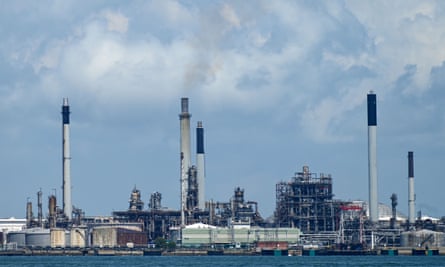
But repeated scandals about their true impact and a crackdown from regulators on claims of “carbon neutrality” have meant that demand and prices for offsetting have slumped, with signs that some carbon credit traders are writing off investments that would have been worth hundreds of millions of dollars as recently as last year.
In the US, the derivatives market regulator has issued a whistleblower alert relating to fraud and misconduct in carbon markets and has created a new environmental fraud taskforce.
“It’s currently a buyer’s market and buyers are, rightly, prioritising quality. There are over a billion tonnes of issued but not retired credits in the market – this suggests lots of credits can be written off, and there will remain a large supply for buyers to tap into,” said Anton Root, head of research at AlliedOffsets, who said buyers were waiting for the final results of initiatives to improve carbon credit quality.
“A correction like that could help to orient the market toward fundamental supply-demand dynamics, which we don’t currently tend to see, and drive up the price for credits that are deemed to be above the quality threshold,” he added.
Hannah Hauman, a former oil trader who is now global head of carbon trading at Trafigura, the world’s largest trader of carbon removal credits, said the current uncertainty was inherent in carbon markets.
“Coming from oil trading, it is strange to see units in carbon markets become invalid overnight. But I think it is in their nature to be constantly evolving with science. It is inherent in the asset class. As much as commodity traders want static, consistent policies for the long term, it is not what the energy transition actually requires. The carbon market needs to be progressive and contracts need to anticipate that,” she said.
A new study in the journal Science has found that millions of forest carbon credits approved by Verra, the world’s leading certifier, are largely worthless and could make global heating worse if used for offsetting.
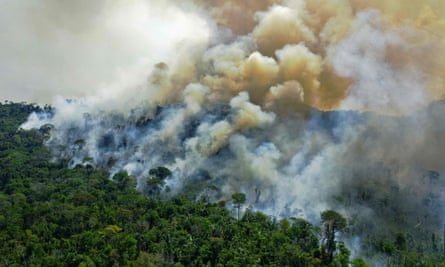
The research by scientists and economists at the University of Cambridge and VU Amsterdam was one of the three studies used in a January investigation into rainforest offsets by the Guardian, Die Zeit and Source Material. The Science study was used in a pre-print form while awaiting peer review, which it has since passed.
The analysis, published on Thursday, found that 18 big forest offsetting projects had produced millions of carbon credits based on calculations that greatly inflated their conservation impact. The schemes, which generate credits by avoiding hypothetical deforestation, were found not to reduce forest loss or to reduce it by only small amounts, far less than the huge areas they were claiming to protect, rendering the credits largely hot air.
The findings follow a 2020 study of 12 projects in the Brazilian Amazon by the same group, which found they had a negligible impact on stopping deforestation despite generating credits on the basis they were preventing large areas from being destroyed. A 2022 study of 40 Verra-approved projects led by University of Cambridge researchers found that while some projects did stop deforestation, most stopped none or small amounts.
Verra has strongly disputed the new study’s findings but said it welcomed input from the scientific community and recognised there were areas for improvement in the current system. It was in the process of replacing its methodologies for generating credits, which should be released later this year.
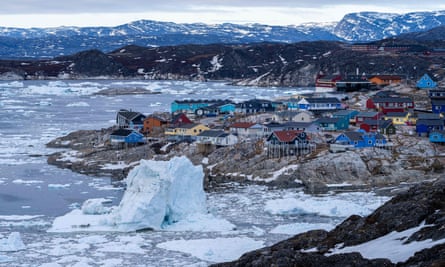
“This information is not new. We provided detailed feedback to the pre-publication version of this paper in a January 2023 technical review after it was covered by the media. Our initial analysis of this version indicates that, despite some minor changes, the overall methodology, results, and conclusions are the same – and, therefore, the significant concerns we flagged earlier this year still hold,” the group said.
In May, Verra’s longtime CEO stood down after concerns about the carbon credits.
The voluntary carbon market had already been experiencing falling prices. Hauman said that if governments could decide what counted as a Paris-compliant credits, that would provide greater certainty.
“The biggest question I get from customers is: where does this uncertainty end? They say they cannot meet their net zero commitment within their own decarbonisation path without carbon credits. One of the things that is going to give us much greater certainty is article 6 of the Paris agreement, which will define Paris-compliant carbon credits for the private sector alongside sovereign actors. We want to see the onus to be on the seller to deliver the agreed quality and that should help buyer confidence a lot,” she said.
Find more Age of Extinction coverage here, and follow biodiversity reporters Phoebe Weston and Patrick Greenfield on Twitter for all the latest news and features.
Originally published at https://www.theguardian.com








